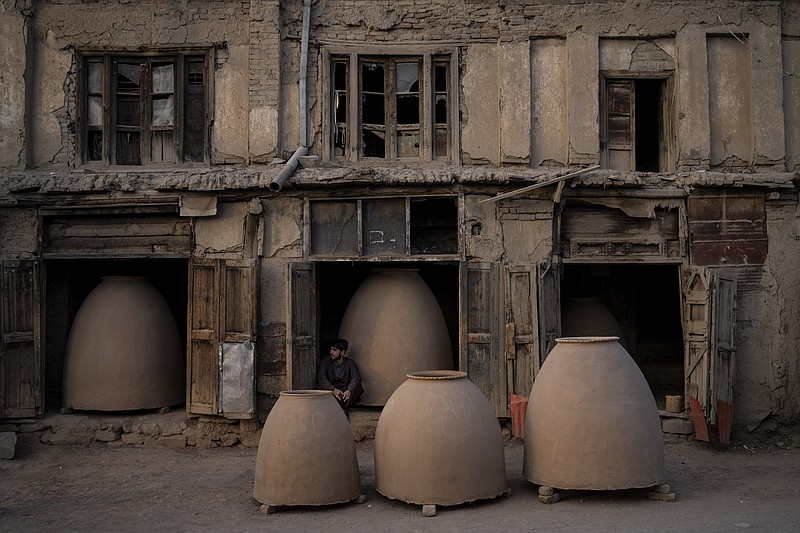DUBAI, United Arab Emirates -- The extremist Islamic State group has claimed responsibility for a series of deadly roadside bombs targeting Taliban fighters in eastern Afghanistan, raising the specter of wider conflict between the country's new Taliban rulers and their longtime rivals.
A string of explosions struck Taliban vehicles in Afghanistan's provincial city of Jalalabad over the weekend, killing eight people, among them Taliban fighters. On Monday, three more explosions were heard in the city, an Islamic State stronghold, with unconfirmed reports of additional Taliban casualties.
The Taliban are under pressure to contain Islamic State militants, in part to make good on a promise to the international community that they will prevent the staging of terror attacks from Afghan soil. There is also a widely held expectation among conflict-weary Afghans that -- despite fears and misgivings about the Taliban -- the new rulers will at least restore a measure of public safety.
"We thought that since the Taliban have come, peace will come," said Feda Mohammad, a brother of an 18-year-old rickshaw driver who was killed in one of Sunday's blasts, along with a 10-year-old cousin.
"But there's no peace, no security. You can't hear anything except the news of bomb blasts killing this one or that," Mohammad said, speaking at the family home where relatives and neighbors gathered for a memorial ceremony, drinking black tea and reciting verses from the Quran.
The latest Islamic State bombings come as the Taliban face the daunting task of governing a country shredded by four decades of war. The economy is in free fall, the health system is on the verge of collapse and thousands of members of the country's educated elite have fled. International aid groups predict worsening drought, hunger and poverty.
"Our misery has reached its peak," said Abdullah, a shopkeeper in Jalalabad. "People have no jobs, people sell their carpets to buy flour ... still there are explosions and (the Islamic State) claims the attacks," said Abdullah, who like many Afghans goes by one name.
The weekend bomb blasts served as a reminder of the threat the militants pose.
Just weeks ago, as American and foreign troops completed their withdrawal and frantic airlift from the country, Islamic State suicide bombers targeted U.S. evacuation efforts outside Kabul international airport in one of the deadliest attacks in Afghanistan in years. The blast killed 169 Afghans and 13 U.S. service members.
The events have bolstered fears of more violence, as Islamic State militants exploit the vulnerability of an overstretched Taliban government facing security challenges and an economic meltdown.
"They're making a very dramatic comeback," Ibraheem Bahiss, an International Crisis Group consultant and an independent research analyst, said of the Islamic State. "There could be a long-term struggle between the groups."
For now, the Afghan affiliate of the Islamic State has shied away from attacks against the West and maintained a local focus, but that could change, Bahiss said.
The aims of the Islamic State affiliate are different from those of the Taliban, who seized control of the country days before the U.S. troop pullout last month. While the Taliban have fought to gain ground in Afghanistan, the Islamic State chapter seeks to incorporate swaths of the country into a broader self-styled caliphate, or Islamic empire, across the Middle East.
The franchise, largely made up of Pakistani militants pushed across the border by military operations, first embraced the Islamic State call for a worldwide jihad against non-Muslims in the months after the group's core fighters swept through Syria and Iraq in the summer of 2014.
While they share enmity toward American forces and a harsh interpretation of Sunni Islam, the Taliban and the Islamic State are sworn enemies. Just as the Taliban battled U.S. coalition troops in the long Afghan war, the group also waged a successful offensive to drive Islamic State militants from their enclaves in the country's north and east -- at times assisted by the U.S. and the U.S.-backed Afghan government.
Despite years of U.S. airstrikes and other military setbacks that shrank Islamic State ranks, the United Nations reported this year that the group "remains active and dangerous," a threat to Afghanistan and the wider region.

